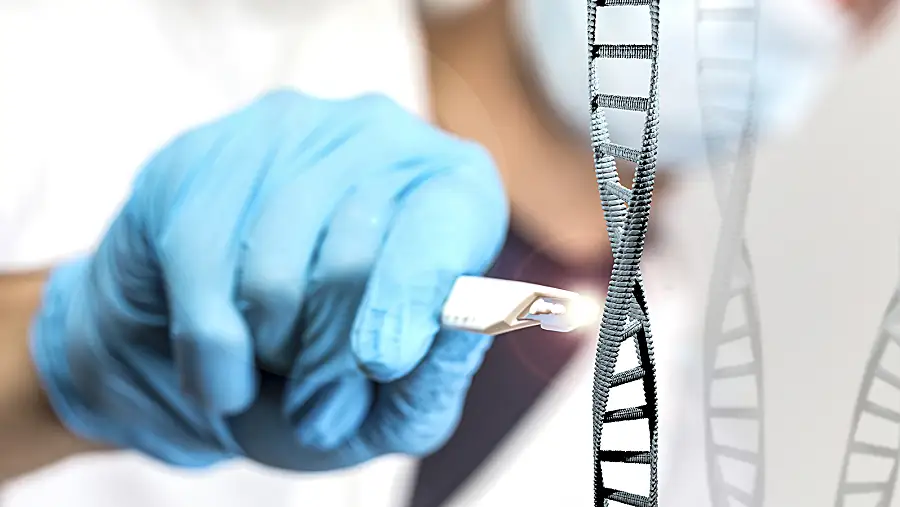
2020 is a year that undoubtedly will go down in history. It brought with it a unique set of challenges, upending the lives of billions of people across the globe. Amid all the uncertainty, change, and loss, it is easy to overlook the glimmers of hope that shone through the darkness. Frontline and essential service employees risked their safety every single day to take care of others. When they were faced with acute shortage of personal protective equipment, the community rose to support them by sewing thousands of handmade masks.
Amid all the chaos of last fall, anyone could have easily missed the announcement on October 7th, 2020 that two women were awarded the Nobel Prize for Chemistry for their ground-breaking scientific research. American biochemist Jennifer Doudna of the University of California at Berkeley, and French microbiologist Emmanuelle Charpentier of the Max Planck Unit for the Science of Pathogens, made history by winning the first-ever Nobel science Prize by two women in its 119-year timeline.
The duo’s joint discovery of CRISPR-Cas9 gene-editing technology is considered one of the most significant breakthroughs in the past decade. This powerful tool can be used to change the DNA of animals, plants, and microorganisms with extremely high precision. This discovery opened new opportunities for plant breeding and innovative cancer therapies, and even made curing inherited diseases seem within reach.
Being a chemist myself, this win instilled a deep sense of pride in me and a source of inspiration. Growing up, I was fortunate that my parents were tremendously supportive and gave me complete freedom to pursue a career of my choice. In college, I was fascinated with how molecules could form and break bonds. Drawing the chemical structures and “electron-pushing” was so much fun! This experience propelled me to start working in a research lab exploring nanoparticle-based cancer therapies.
As an Indian-American woman, I have experienced gender bias from a cultural standpoint; however, I was unprepared to deal with similar experiences in the context of my career. I quickly realized that traditional stereotypes about women are not only rampant among the general public, but science seems to be no exception. It appeared that inadequate exposure to science at an early age and a lack of development and retention of women scientists in workplaces have led to underrepresentation and challenges in advancing women in science. In addition, when women do persevere and pursue careers in science, their contributions have often been overlooked and unrecognized.
It is indeed alarming that Doudna and Charpentier bring the grand total of women who have won the Nobel Prize in Chemistry to seven. The tally for men is a staggering 185. In recent years, the Nobel committees have been revamping their selection process and taking steps to remedy this gender disparity. Diverse faculties are crucial as they bring different perspectives and can only lead to a greater degree of innovation and discovery.
In the short span of my career thus far, it has been incredible to witness the beginning of this shift in mindset and the transition towards a more balanced community, where the work of women and minorities in science is beginning to be recognized. During my undergraduate and graduate schools and my first job, I was in the minority with respect to gender. I learned a great deal as I navigated these biases, including my own. Interestingly, in the past few years, I have found myself working in women-centric groups—a delightful happenstance – and addressing women’s global health challenges! In addition to being surrounded by strong-minded women within my family, friends, colleagues, and mentors, I have been fortunate to work with female supervisors who serve as role models with their mentorship abilities and exemplary work ethic. I strive to grow into such a role and steer the next generation of scientists. As I continue my tenure at RTI International, I hope to serve as female mentor or “femtor” to young girls and women interested in STEM by helping them find joy in small discoveries, encouraging them to reflect and learn from their failures, and harnessing their curiosity.
We have a long road ahead of us and the path to achieve gender equity in science. At current rates will take a long time. For true inclusivity and belonging for women in the field, it might take even longer. The recognition of two women for this prestigious award, however, is an important milestone and demonstrates that women have valuable contributions to make and that the scientific community is committed to bridging the gap. As the current generation of scientists takes over leadership positions, I believe we can accelerate the reduction of gender bias and propel the advancement of women as scientific leaders for the betterment of humanity and the globe we inhabit. If nothing else, science has taught me the virtues of perseverance and hope for a better tomorrow. The change begins with us, and the seeds of a better future must be planted now.
